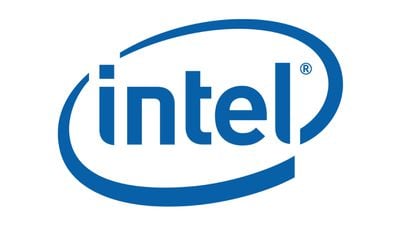Activist hedge fund Third Point LLC is pushing for a major shakeup at Intel in response to threats from Apple, Microsoft, Amazon, AMD, TSMC, and Samsung (via Reuters).

Intel's in-house manufacturing capabilities have struggled to provide the chips its clients want in recent years, with many of its offerings lagging behind its rivals in terms of speed and power consumption. While 2020 has afforded Intel a boost in the form of surging laptop sales, the company has failed to capitalize on demand more broadly for semiconductors and is facing the loss of major clients such as Apple, who have begun to transition from Intel chips to custom silicon.
In a letter to Intel's chairman, Omar Ishrak, seen by Reuters, Third Point calls for "immediate action" to restructure and explore alternative business strategies. Firstly, Third Point requests that Intel urgently addresses its "human capital management issue." Many of Intel's talented chip designers have reportedly fled the company due to being "demoralized with the status quo," which has stifled innovation.
The letter explicitly highlighted that Intel has lost its prime position in microprocessor manufacturing to TSMC and Samsung Electronics, and is losing key market share in its core PC and data center markets to AMD. The company is also accused of being largely absent in the emerging market of artificial intelligence. "Without immediate change at Intel," the letter cautioned, "we fear that America's access to leading-edge semiconductor supply will erode."
Third Point encouraged Intel to consider separating its chip design and manufacturing divisions, and instead seek a joint venture in manufacturing. It was also urged to divest its failed acquisitions, such as the $16.7 billion purchase of programmable chip maker Altera in 2015.
Following Apple, Intel customers Microsoft and Amazon are expected to cease using its chips, resorting to their own custom silicon instead. Third Point expressed concern that the custom silicon designed by these companies is sent to be manufactured by companies in East Asia. As such, it suggests that Intel must offer new solutions to retain its major clients as customers rather than have them send their manufacturing away.
Splitting up design and manufacturing operations could help Intel address some of the threats it is facing. Tapping external vendors to manufacture its most advanced processors, a step Intel executives are said to be extremely resistant toward, could help to lower costs. Furthermore, opening up Intel's own manufacturing capability to make non-Intel processors could allow it to produce the custom silicon chips increasingly wanted by its major clients.
Intel has reportedly been slow to respond to investors' concerns. The letter threatened that if Third Point senses "a reluctance to work together to address the concerns," it will submit nominees for election to Intel's board at its next annual meeting. Third Point is said to hold a $1 billion stake in Intel, affording it a position where it can push for change at the company.
A statement from Intel responded to the intervention, saying "Intel welcomes input from all investors regarding enhanced shareholder value. In that spirit, we look forward to engaging with Third Point LLC on their ideas towards that goal."























